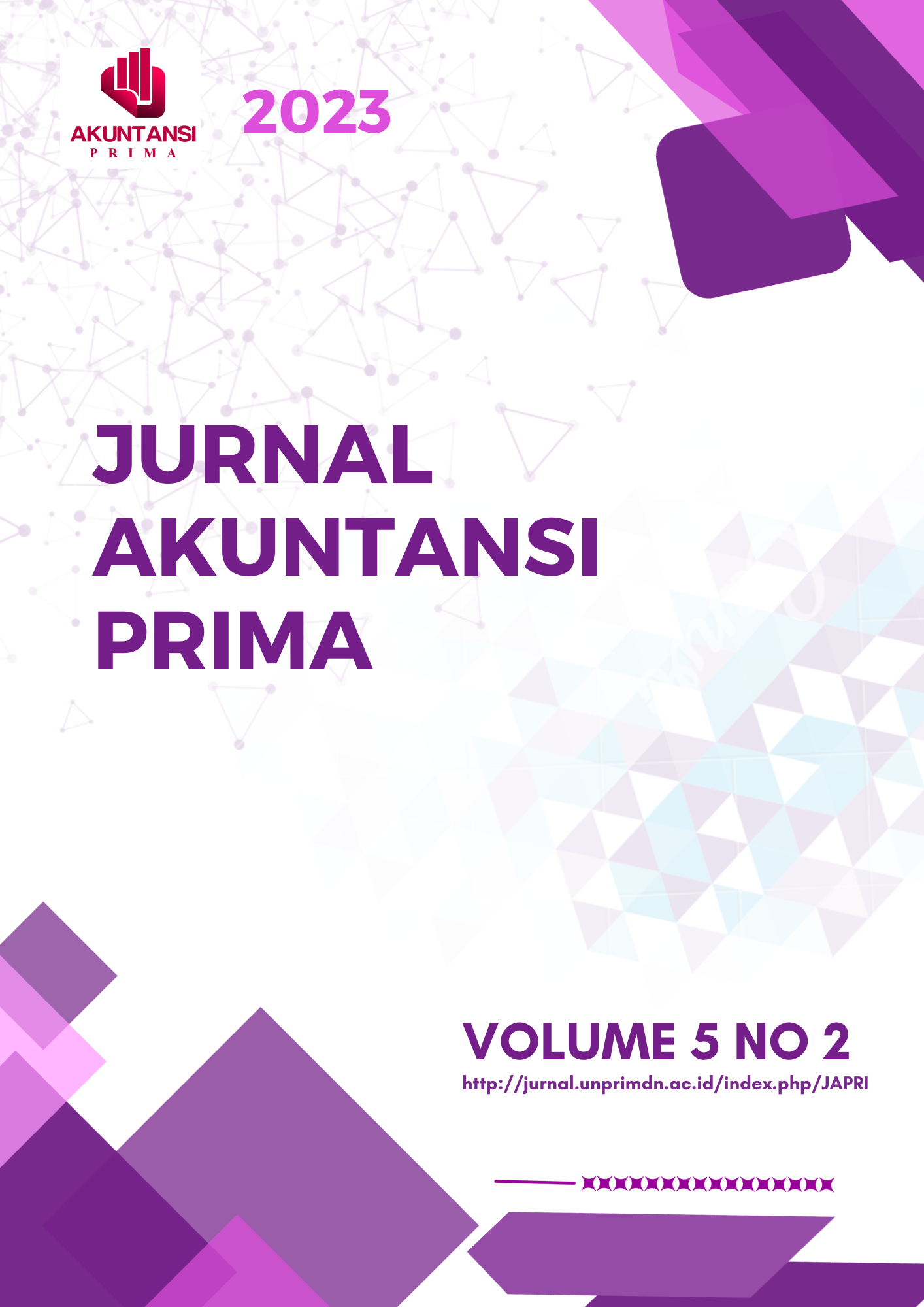PENGARUH SANKSI PAJAK, MOTIVASI MEMBAYAR PAJAK DAN TINGKAT PENDIDIKAN TERHADAP KEPATUHAN WAJIB PAJAK ORANG PRIBADI USAHAWAN DI KPP PRATAMA KOTA PRABUMULIH
Main Article Content
Abstract
Tax is a constantly evolving phenomenon in society, serving as a crucial tool for governments to achieve national and state independence by financing development projects that benefit the common interests of the people. This study aimed to investigate the impact of Tax Sanctions, Motivation to Pay Taxes, and Education Levels on the compliance of individual taxpayers and entrepreneurs at KPP Primary Prabumulih City. The variables considered were Tax Sanctions (X1), Motivation to Pay Taxes (X2), Education Level (X3), and Taxpayer Compliance (Y). The sample size consisted of 99 taxpayers from KPP Pratama Prabumulih city. This research adopted a quantitative approach, which aimed to provide an empirical explanation of the phenomenon through statistical data, identifying characteristics and patterns of relationships between the variables. The model's summary revealed that the calculated results yielded an R Square value of 0.836, indicating a high degree of explanation. Consequently, it can be inferred that the variables tax sanctions, motivation to pay taxes, and education level collectively contributed to 16.4% of the influence on the dependent variable (taxpayer compliance). In other words, the independent variables (tax sanctions, motivation to pay taxes, and education level) could account for 83.6% of the dependent variable (taxpayer compliance). However, it should be noted that the remaining 16.4% is influenced or explained by other variables not examined in this study, such as taxpayers' understanding, perceptions, and so forth.
Article Details

This work is licensed under a Creative Commons Attribution 4.0 International License.
References
Tax is a constantly evolving phenomenon in society, serving as a crucial tool for governments to achieve national and state independence by financing development projects that benefit the common interests of the people. This study aimed to investigate the impact of Tax Sanctions, Motivation to Pay Taxes, and Education Levels on the compliance of individual taxpayers and entrepreneurs at KPP Primary Prabumulih City. The variables considered were Tax Sanctions (X1), Motivation to Pay Taxes (X2), Education Level (X3), and Taxpayer Compliance (Y). The sample size consisted of 99 taxpayers from KPP Pratama Prabumulih city. This research adopted a quantitative approach, which aimed to provide an empirical explanation of the phenomenon through statistical data, identifying characteristics and patterns of relationships between the variables. The model's summary revealed that the calculated results yielded an R Square value of 0.836, indicating a high degree of explanation. Consequently, it can be inferred that the variables tax sanctions, motivation to pay taxes, and education level collectively contributed to 16.4% of the influence on the dependent variable (taxpayer compliance). In other words, the independent variables (tax sanctions, motivation to pay taxes, and education level) could account for 83.6% of the dependent variable (taxpayer compliance). However, it should be noted that the remaining 16.4% is influenced or explained by other variables not examined in this study, such as taxpayers' understanding, perceptions, and so forth.

